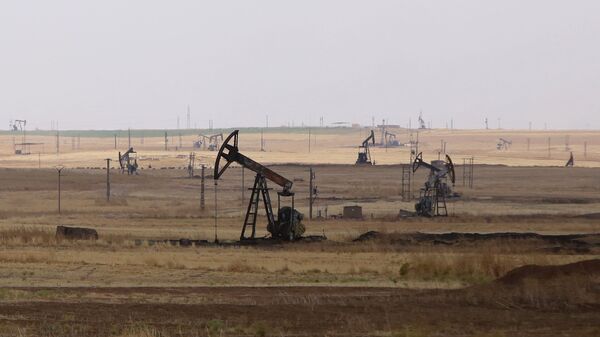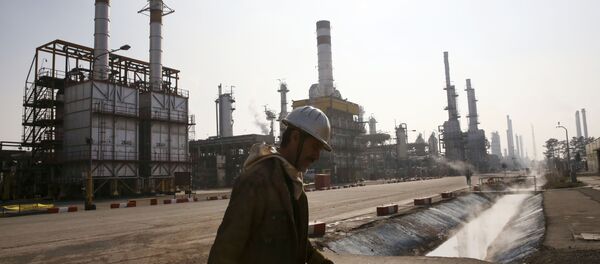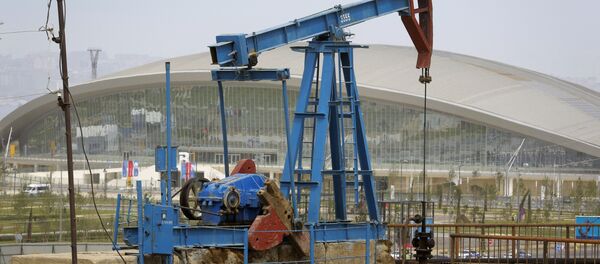MOSCOW (Sputnik), Svetlana Alexandrova, Alexander Mosesov — Oil producing states, which are currently severely hit by the decline in oil prices, try to reach an agreement to freeze oil output at January levels to support the global prices.
At the latest meeting of the Organization of the Petroleum Exporting Countries (OPEC) in Doha, which was attended by several non-cartel states in mid-April, the sides failed to agree on freezing crude oil output at January levels to shore up prices after Riyadh had unexpectedly backed out of an agreement.
On Saturday, Saudi Arabia’s Petroleum and Natural Resources Minister Ali Naimi was fired as part of a larger governmental reshuffle. Khalid Falih, the CEO of the state-owned Aramco oil company, was appointed to replace Naimi.
No Changes to Anticipate
A commodity analyst for UBS' Chief Investment Office Wealth Management Research said that the incumbent minister's policy would unlikely differ from the one of his predecessor.
"Khalid al-Falih backed al-Naimi decision in November 2014, when OPEC decided to transition from a 'swing producer' to a 'volume maximizer' that aims to push the least-efficient producers, such as high-cost producers, out of the market," Giovanni Staunovo said.
Joel Hanley, editorial director with European & African Oil, expressed a similar view, saying that any OPEC members hoping to witness any changes in June when Falih was expected to attend his first OPEC ministerial meeting "are sure to be disappointed."
"The new oil minister's recent statements signal that Saudi Arabia will continue with current policy, increasingly unpopular with other OPEC members and producers outside the group, of defending its share of the global oil market by keeping output high regardless of prices. Nor is the kingdom likely to join other producers in a pact to freeze output unless Iran comes on board," Hanley added.
Non-OPEC Burden of Adjusting Supply
"The burden on adjusting supply will remain on non-OPEC [countries]. Following Falih's latest comments that Saudi Arabia is committed to meet existing and additional demand, market participants are likely to closely track the Saudis' supply reaction in the coming weeks/months," Staunovo said.
The UBS analyst added that the oil market would remain oversupplied in the coming months due to the developments in the Middle East region.
"Recent news from Iran, Kuwait and Saudi Arabia suggest that they could increase crude production by 0,5 mbpd [million of barrels per day] or more q/q [quarter on quarter] in the second quarter of 2016," Staunovo added.
Who Will De-Facto Fill Ousted Minister's Shoes?
"By the start of 2016, Naimi's ability to mend rifts in OPEC's ranks was limited, as his power to shape or modify Saudi oil policy had been eroded by the rise to power in the kingdom of Deputy Crown Prince Mohammed bin Salman, along with his oil adviser al-Falih."
Hanley said that aspiration of Salman to gain a complete control over Saudi Arabia’s oil strategy and, possibly, fill Ali Naimi's shoes, as the de-facto head of OPEC, could be seen in this swap.
Now, firmly in control of Saudi Arabia's oil sector, Salman and Falih, through the incumbent oil minister, "will be [able] to fill Ali Naimi's shoes as the de-facto head of OPEC — an organization which his predecessor largely shaped into one that agreed fairly amicably to be led by him," Hanley added stressing that in his 21 years as oil minister, Naimi had built a formidable reputation by virtue of his performance at OPEC, where he had consistently delivered on policies presented as ministerial consensus.







